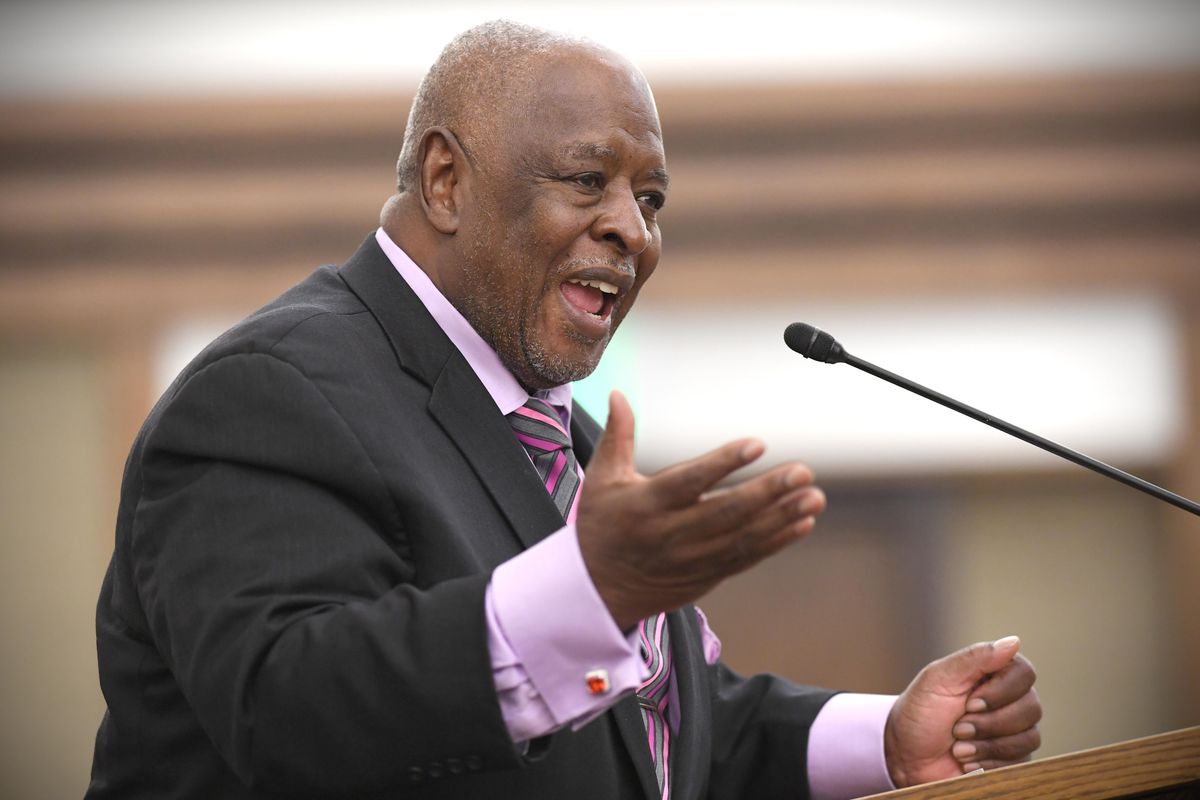Spokane pastor helps keep MLK’s dream alive

In the moments leading up to the spotlight, the Rev. Percy “Happy” Watkins has an irrepressible smile, as his name would suggest.
When the emcee recites Watkins’ impressive list of accomplishments, the crowd unites in applause. The 75-year-old pastor of New Hope Baptist Church slowly makes his way to the podium.
Before taking hold of the microphone, he lays down a piece of paper with the words he’s read, reread and recited hundreds of times. It’s mostly ceremony at this point – he has every syllable and punctuation memorized – but he keeps it handy just in case.
“I say to you today my friends, that even though we face the difficulties of today and the next four years, I still have a dream,” he says to the crowd, altering the last few words of Martin Luther King Jr.’s famous speech.
For the last 34 years, this is Watkins’ life in the weeks and days leading up to Martin Luther King Jr. Day: reciting King’s speech to those who will listen.
Sunday, those listening were the hundreds of churchgoers and community members at the Church of Jesus Christ of Latter-day Saints on the South Hill.
“I want to give this speech, but first of all to all of the children, can you stand?” he asked the dozens of children in the crowd, who all stood. “Because Martin Luther King said these words: ‘If you can’t be a tall pine or the top of a hill, be the shrub in the valley, but be the very best little shrub you can be.’ ”
Since Watkins first heard the speech in 1963 while stationed at Fairchild Air Force Base, he knew it was important. In the years since, he’s studied every line back and forth, finding new meaning with every pass.
“Even though it was given so many years ago, it’s still vital to this day and age, even more so now,” said Watkins’ wife, Etta Watkins. “Still, you can see people in a lot of the audiences, they tear up and get so emotional because they’re listening to the words he says.”
Since 1983, Watkins has delivered the speech at venues all across the Pacific Northwest. For years he would perform it 30 to 40 times over a two-week period leading up to the federal holiday.
“I know the speech,” he said. “But not just the speech. I know the struggle. And that’s what makes the combination so powerful. The speech and living through turmoil.”
But for the last few holidays, Watkins has slowed down considerably due to his age and his health. In fact, this past week, he’s recited it about eight times, with another three scheduled Monday.
But that doesn’t mean his audience has slowed down one bit. One of the venues this week was at Sacajawea Middle School, where his grandson attends. After delivering the speech, Watkins said the school’s principal asked if he would be OK with shaking some of the students’ hands.
He said “of course,” and to his disbelief, “500 of them came up.”
While he’s not as limber as he once was, an average spectator wouldn’t notice. When the speech gets going and the words start rolling, Watkins raises his voice, pauses for reflection and shakes his arm just as his idol once did.
And though he’s cutting back on the number of venues he visits each year, he has at least “a couple more years” ahead of him, he said. “My eyesight’s getting dim and my hair’s getting thin. But I got a couple more years.”
So when police Chief Craig Meidl and Mayor David Condon finished their words on America’s freedoms, the stage was set for Watkins to carry the crowd home with King’s 54-year-old words about having a dream.
“It is a dream that is deeply rooted in the American dream,” Watkins continued. “I have a dream …”